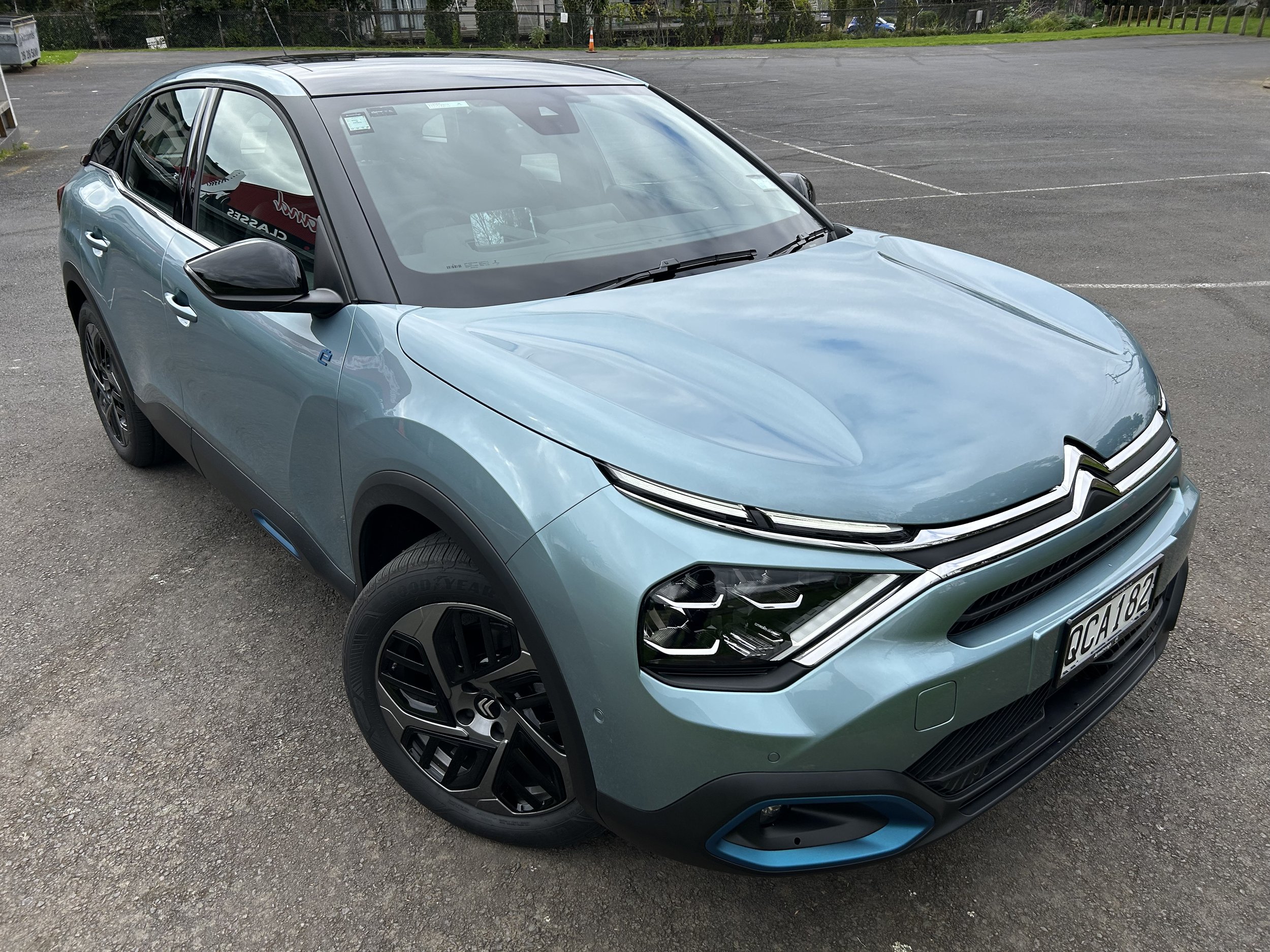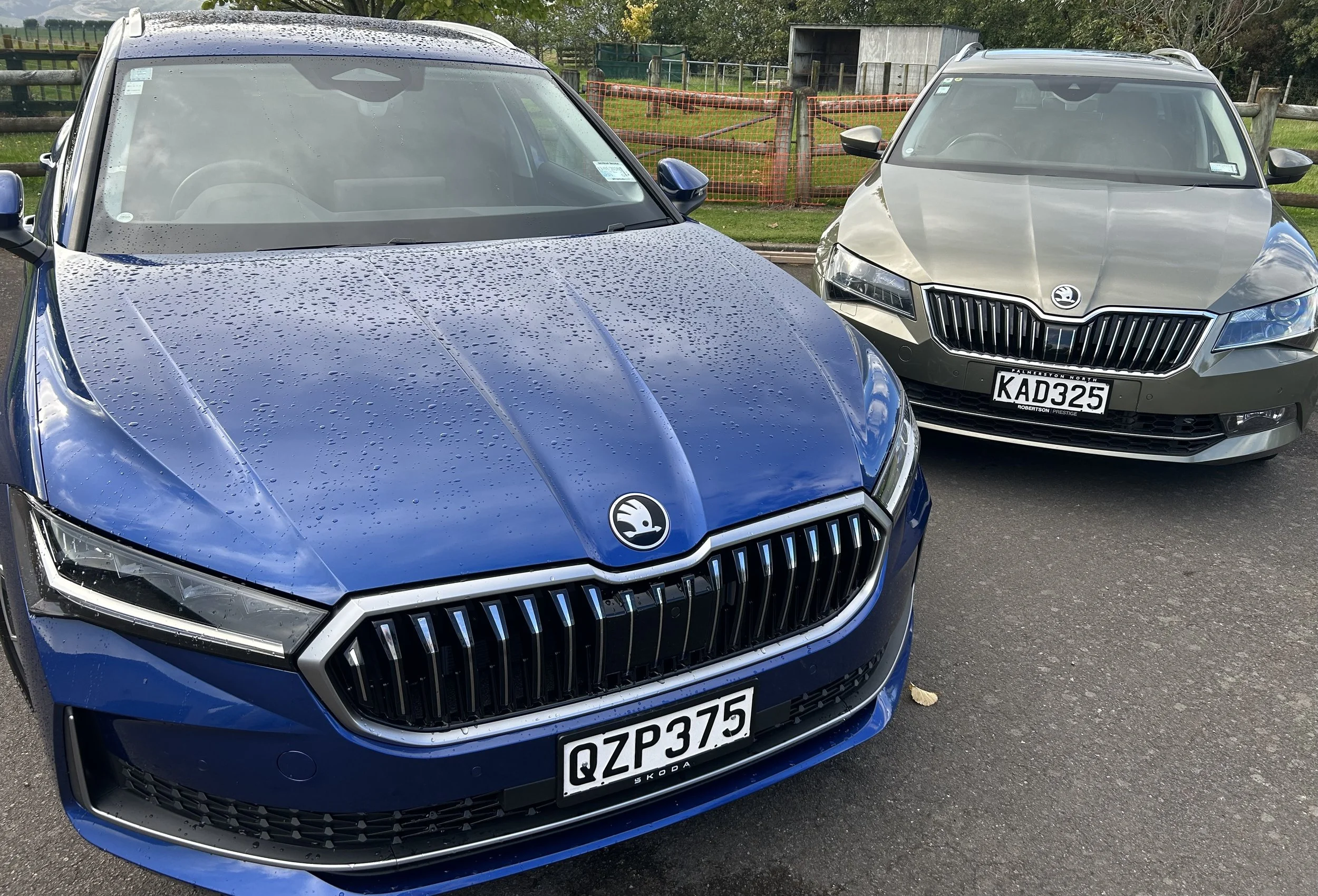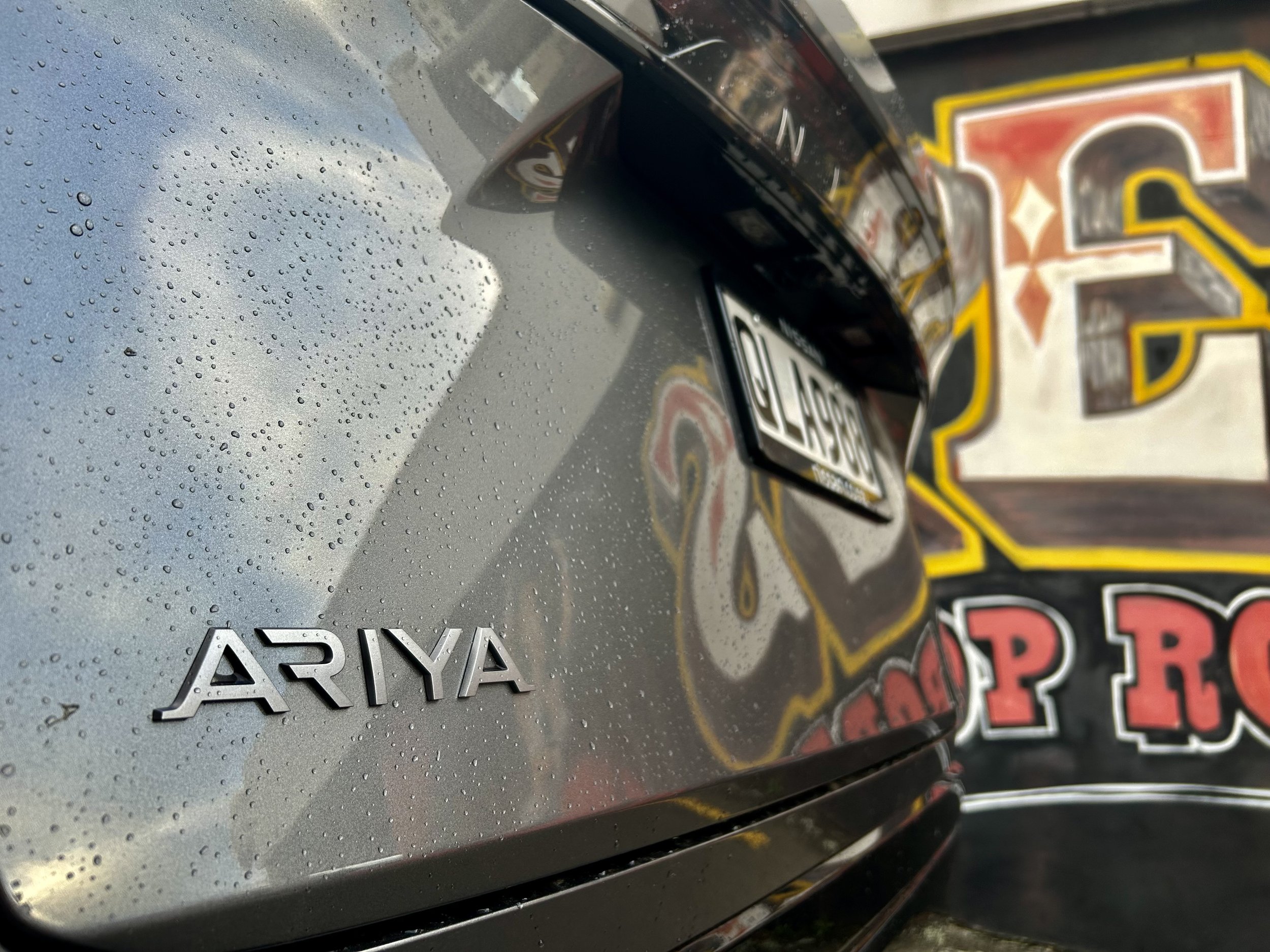Ukraine war impacting on NZ market
/For Opel NZ, the cost of a two-month voyage from Europe is cheaper than a one day factory to port truck ride.
TRUCKING New Zealand-bound Opels the 600 kilometres from the factory to a departure port in France costs more than the subsequent 60-day, almost 27,000km voyage from there to Auckland.
This from the chief executive of Auto Distributors, the national rights holder to the German marque, plus Citroen and Peugeot brands.
At a media introduction to latest Opel arrivals - the plug-in hybrid Astra GSe (top) hatch and Grandland sports utility (in black) - and a fully electric version Citroen’s C4 hatchback (the blue car), Chris Brown says the cited reason - a car transporter driver shortage from many involved being Ukrainians who went home to fight after Russia invaded 18 months ago - might be apocryphal.
Yet, he says, it’s indisputable shipping costs from the Continent have trebled since hostilities began. It hopes switching to another departure port will ameliorate this.
“The cost and problem we have in Europe isn’t necessarily shipping at the moment, it’s actually getting the cars from the factory to the boat.
“It probably costs us more to get a car on a truck to the port than it does to get a car on a boat to here.”
Car makers are also finding those roll-on, roll-off ships have also been utilised to move military vehicles, which also has an affect on the industry.
“The Ukraine war might seem a long way away but to us, in the past 12 months, it has been very close.”
The unexpected impost could well have been expected to be felt by NZ buyers. Says Brown: “That sort of thing puts enormous pressure on pricing.” But it hasn’t.
Quite the contrary.
Dogged commitment to a promise made on relaunch 18 months ago of intent to be a challenger brand - the leading provider of cost-effective European quality - remains firm, to extent Opel NZ has twice this year taken its prices to the carver, first in April then again just weeks ago.
The latter ‘Clean Car clear out’ campaign - also over six weeks, wrapping up at the end of September - has resulted in the core Mokka-e electric model being offered for $13k less than usual, with other models also drastically reduced.
The savings only apply to cars in stock until the end of next months and include a Clean Car Discount rebate and a reduction from Germany.
It seems a dramatic action for a brand that, with 71 registrations from 2022 and a further 183 this year, to end of July, seems hardly firmly established.
Yet Brown and national commercial manager Noah Robertson are confident Opel is making good ground, with acceptance growing.
The cars’ low-emissions status has won favourable consideration for fleet application and some products have achieved all-of-Government selection status.
While acknowledging lowering stickers even temporarily risks affecting longer-term residuals and might upset early-bird adopters who paid full RRP, they also argue the clearances were the only reasonable reaction to an unusual market situation in which it needed to address stock holdings.
Rivals were dropping their prices, notably in the electric sphere with Tesla bering most bullish. They had to respond. Also, the Corsa in original format was on runout; the next shipment of the baby model set to bring a radical facelift.
Brown says the EV market has become extremely competitive with an increasing count of models on offer, and therefore prices are coming back.
“No one can argue that the market hasn’t moved. We all know you could rattle off the names of at least 10 brands that have repositioned,” says Brown. Tesla started it, but Polestar, Volkswagen, Skoda and BYD were among those that also followed.
“This put us in a position where we had to decide. We didn’t want to be the first but we sure did not want to be last, either.,” Robertson says.
The men say intent to cement Opel as a challenger brand remains firm. It doesn’t intend to make special pricing - which also enveloped the French marques it holds - a regular thing. Consumers should enjoy this largesse while they can.
“This isn’t in our mind for a permanent position,” says Brown.
“This is a specific reaction to the circumstances we faced. This sort of thing is not something you want to be doing every day.
“We want our dealers to be healthy and profitable – a lot of that stock burden dealers were carrying has transferred to us, which is the responsible thing to do.
“Ideally we want to make sure that we have the right flow of vehicles coming through the pipeline just in time.”
Consumers have reacted positively to the cars being cheaper. Mokka-e, says Robertson, “jumped into the top 10 in May”.
“We managed to achieve share growth in a declining market. It certainly is a brilliant time for the consumer, there’s never been a better time to buy in my opinion.”
Speaking about the 2023 market condition, Brown says it’s been like nothing he’s previously experienced in his two decades’ industry involvement.
Maintaining an efficient supply chain with a make that requires a six month lead time between ordering and delivery at time of supply delays came atop navigating changes imposed by Clean Car legislation, not least after it revised on July 1.
Common industry sentiment about consumers being shy from now on until after the general election and potential the market will stay soft until February isn’t dismissed.
Auto Distributors has acted to improve its shipping arrangement from Europe in intent to further entrench as the biggest volume performer among distributors of Stellantis Group products.
All NZ-bound Opels have until now come from the main factory in Russelsheim (above) to Le Havre, France’s largest port, on a once-a-month sailing.
Future shipments will come out of Zeebrugge, Belgium, which is beneficial on two counts.
First, the new exit point is 150kms’ closer to the main factory and also handy for Grandland, out of another city in Germany, Eisenach.
Second, this service has vessels departing fortnightly. So more cars, with shorter wait times for customers.
That will create far more frequency, says Brown. More deliveries, but not necessarily big shipments which means more potential for Auto Distributors to apply a just-in-time logic, which means it keeps fewer cars in stock but also something to offer. So, a big saving at distributor level.
“We will have a better situation of cars coming in, going to dealers and straight to consumers.”
The quicker the turnaround, the better.
“You talk to anyone, whether it is a dealer or whether it is a wholesaler, and they will tell that the cost of holding stock is phenomenal.”
He relates being told by dealer recently how having a million dollars worth of cars in stock was costing $10,000 a month.
“The margins in cars are not what people think, and on electric they are not what they used to be,” Brown says.
“The days of 10 percent (profit margin) are not there any more. So you don’t need to have cars sitting on a yard for too long before it will be unprofitable.
“There’s a lot of pressure throughout the system to try to streamline that supply chain, hence our move to Zeebrugge. To try and again make things faster.”
The men said yesterday that the original shipping arrangement was a factor in the late arrival of the cars seen yesterday, to point the media introduction was a reschedule and, even then, the cars had only landed with days to spare.
The Astra GSe PHEV is selling for $71,990 and the Grandland SRi PHEV for $77,990, with both qualifying for the Clean Car rebate of $4025. The Citroen e C4 Shine EV qualifies for the rebate of $7015 and is a $69,990 car.




















